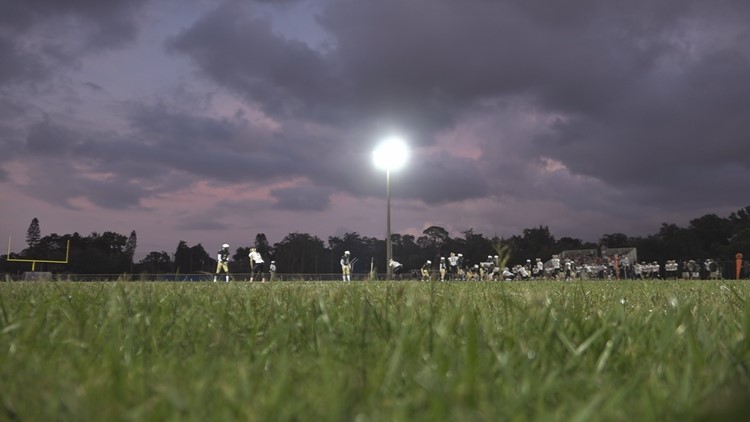A study by researchers at three universities found that just one season of high school football can change the structure of a teenager's brain.
Researchers at UC Berkeley, Duke University and the University of North Carolina at Chapel Hill took brain scans of 16 high school players, ages 15-17, before and after the season. Results from this new type of MRI showed "significant changes in the structure of the gray matter in the front and rear of the brain." The scans also showed changes to structures deep inside the brain.
The scanned players wore helmets, and none had sustained concussions.
"This is the period when the brain is still developing, when it is not mature yet," Study senior author Chunlei Liu, said is a release from Berkeley News. "So there are many critical biological processes going on, and it is unknown how these changes that we observe can affect how the brain matures and develops."
Read the report from Berkeley News.
Every year, about 300,000 adolescents sustain concussions while participating in sports, according to research from Northwestern University.
Last month, 10News published the three-part series, Tackling Concussions, digging into the three-year study of concussions being done in Tampa Bay. One father, Vincent Wright, is proud to watch his son play football on Friday nights. Wright played high school and college football, but attributes all the hits he took for giving him early-onset Parkinson's disease.
- WATCH: Tackling Concussions Part 1
- WATCH: Tackling Concussions Part 2
- WATCH: Tackling Concussions Part 3
Dr. Patrick Mularoni is one of the lead researchers studying the effects of concussive and sub-concussive hits on the brains of high school athletes. He said doctors are learning more and more about concussions every day, but there is still a lot they don't yet know.
A study published in 2017 found that if kids play tackle football before age 12 and continue through high school, they are putting their brains risk.
The study from researchers at Boston University studied 214 former football players. It found that playing football before 12 increased the chances of having problems with behavior and executive functioning later in life. It also found high odds of depression later in life.
The Berkeley, Duke and UNC study used an MRI called diffusion kurtosis imaging to look at intricate neural tangles making up the brain's gray matter. After one season of football, researchers found players' brains changed and that these changes had correlations with "the number and position of head impacts measured by accelerometers mounted inside players' helmets."
Though the study found changes, further tests showed cognitive function did not change over the course of the season. It's also unclear if these brain changes are permanent, researchers say.
►Make it easy to keep up-to-date with more stories like this. Download the 10News app now.
Have a news tip? Email desk@wtsp.com, or visit our Facebook page or Twitter feed.



